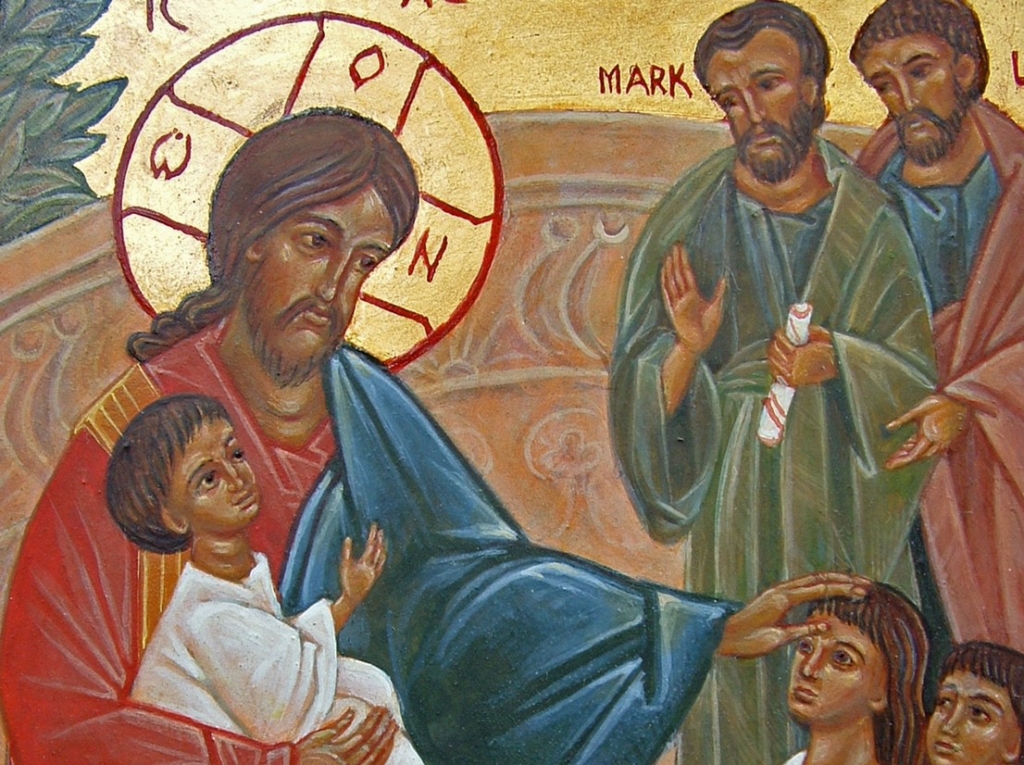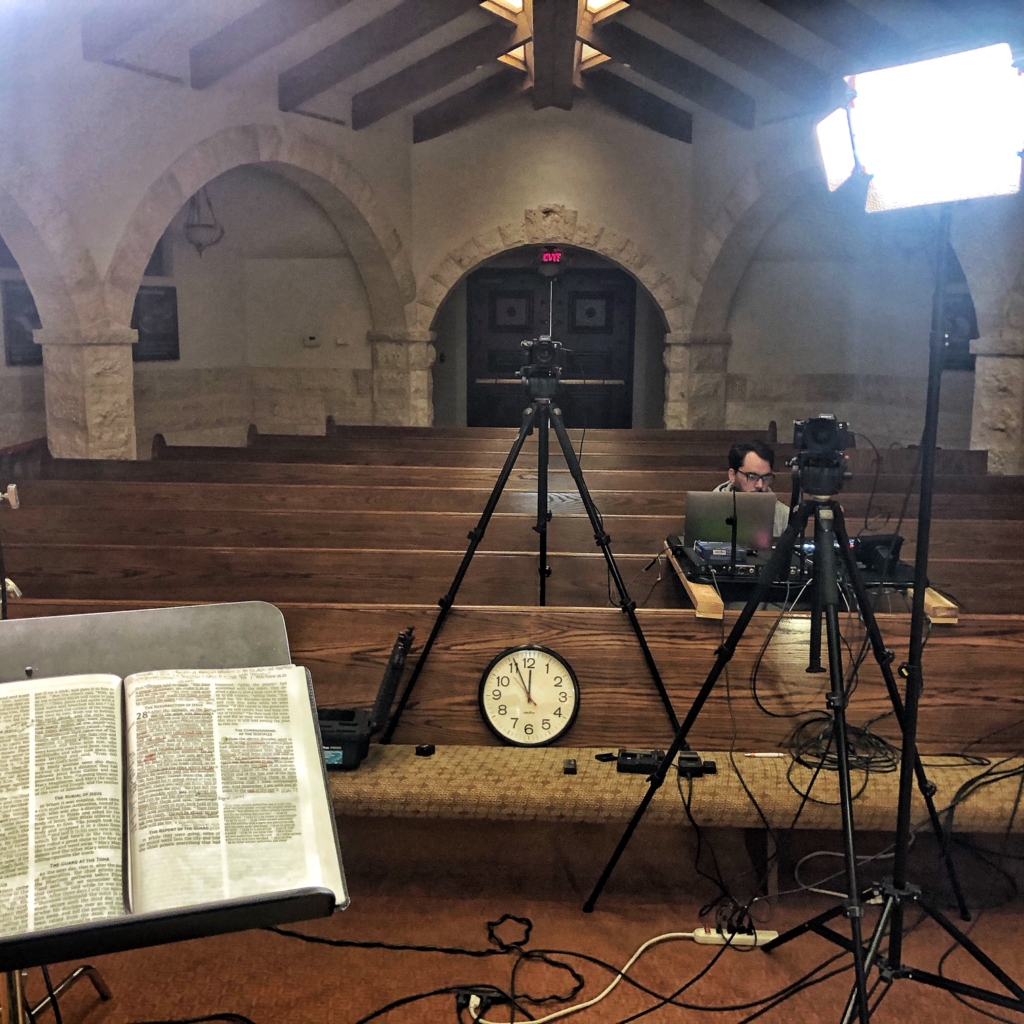Don’t Let A Pandemic Turn You Into A Gnostic

Don’t Let A Pandemic Turn You Into A Gnostic
Brian Zahnd
O God, make speed to save us.
O Lord, make haste to help us.
This is my daily prayer in the time of coronavirus. May God make speed to save us from this awful global pandemic. May God make haste to help us find a vaccine and effective treatments. Amen. In the meantime my family is observing social (physical) distancing practices and our church is not gathering, except online in a virtual manner. And we will continue these practices for as long as national, state, and local authorities instruct us to do so. I want to be clear about that.
Word of Life Church is doing an excellent job producing a Sunday morning online service. And throughout Holy Week and Easter Week I’ve been conducting daily services from our prayer chapel. We have the experience, equipment, and personnel to produce high-quality online services. We have long recognized that the church of the twenty-first century benefits from a sophisticated digital presence. I want to be clear about that too. But I also want to say something else as clearly as possible:
Don’t let a pandemic turn you into a gnostic!
I’ve seen far too many people writing about how “virtual gatherings are the future of the church.” Some even seem giddy over the epiphany they have received as they do digital church while sheltering in place.
“This is going to change everything! We don’t have to go to the trouble of getting dressed on Sunday morning, getting in our cars, driving across town to go to church in person — we can just stay home in our pajamas and do it online! And why do churches even have to have buildings anyway? We can just have virtual church.”
I can sum up the sentiment of these online musings in this actual quote:
“In the future church, digital will sometimes replace your local gatherings as people slip seamlessly between the digital world and the in-person world. If people live that way, so should the church.”
My take on that is a hard no. Don’t let a pandemic turn you into a gnostic.
To prefer digital over enfleshed is a gnostic move; it’s a move away from what it means to be human; it’s an insult to the Incarnation. Gnosticism — the first and most persistent Christian heresy — is a complex set of dualisms, but at its core Gnosticism believes that the telos of salvation is a pure spiritual (virtual?) existence. Gnostic salvation is to be relieved from the burden of having to live in a material world. It’s the Gnostic, not the orthodox Christian, who will say, “this world is not my home, I’m just passing through.” The Gnostic, not the orthodox Christian, wants to escape this world and fly off to the Platonic heaven of the perfect forms. Christianity, on the other hand, says something very different.
God created an actual world, not a virtual world. And God declares that the actual world of creation is very good. God wants Adam and Eve (humanity) to live in his good world, not just watch it on a screen. The redemption of the world is found in the mystery that the Word became flesh, not computer code. The blessed hope of the Christian faith is resurrection and the restoration of all things, not an escape to a non-temporal, non-corporal spiritual (virtual?) afterlife.
Christianity is not a religion of abstract ideas; Christianity is a sacramental religion. It takes water and oil, bread and wine to properly practice our faith. It’s a faith where we lay hands on the sick and greet one another with a holy kiss — or at least a hearty handshake. Of course, we’re not doing these things right now. But not because this is “the future of the church.” We are “forsaking the assembling of ourselves together” only because the world at the present moment is diseased, and we must respond with appropriate measures. But let’s not normalize what is a move away from what it means to be human. Virtual church is like a virtual beach vacation — it’s just not the same thing. A beach vacation means sand between your toes, and real church means sacrament and human contact.
Online gatherings are emergency measures, not the future of the church. A hot-take commentator may say, “If people live that way, so should the church,” but we all know the church is called to be something other than the world. I can’t imagine that contemplative wisdom would advocate for more screen time and less face-to-face time. For years Word of Life has had online services and all of our sermons are available online. We embrace digital technology. But it is no substitute for the incarnational gathering of the body of Christ. In this present moment we are an exclusively virtual church only because we have no other choice. When we again have a choice, we will always prefer the real/enfleshed/actual/physical/human/living gathering over the unreal/digital/virtual/technological/electronic/lifeless (non)gathering.
When we “gather” online we mostly just watch something, and we can entirely control the experience. If we choose, we can just lurk and leave whenever we like. That may seem preferable, but it’s not church. Church throws us into the company of people who, left to our own devices, we would probably never have any interaction with. But these are precisely the people we need to meet, get to know, and learn to love. Left to our own (electronic) devices we will be stunted in our Christian maturity. For God so loved the world that he didn’t send a text message — he sent his Son in person.
Though I’m saddened by it, I’m completely onboard with not gathering in person for as long as it is necessary in the midst of an outbreak of infectious disease. But it is the Holy Spirit who leads the church into her future, not an infectous disease. And the future of the church lies where it always has — in the gathering of the baptized who come to the table together and learn to love one another as Christ has loved us.
Those of you who know me, know that I’m not a big hugger by nature. But I long for the day when we can gather again and have some good long hugs.
O God, make speed to save us.
O Lord, make haste to help us.
BZ

This is my setup in the Upper Room where I’ve conducted daily online services during Holy Week and Easter Week. It’s the best we can do right now, but it’s a poor substitute for the real thing.